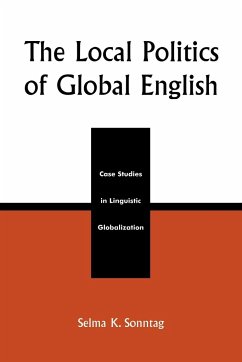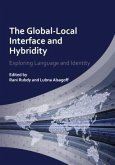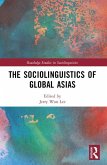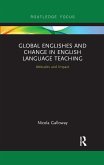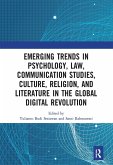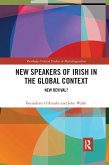I>The Local Politics of Global English analyzes linguistic globalization in five countries that differ greatly in both their degree of global integration and their use of English. Concepts of hegemony and resistance, elites and subalterns, and liberalization and democratization are incorporated in case studies that provide insight into the politics of linguistic globalization.
Hinweis: Dieser Artikel kann nur an eine deutsche Lieferadresse ausgeliefert werden.
Hinweis: Dieser Artikel kann nur an eine deutsche Lieferadresse ausgeliefert werden.
The focus of Professor Sonntag's book, local political responses to the globalization of English, becomes more important every day, and it has the potential to illuminate our understanding of a wide range of political phenomena. The book's use of well-chosen case studies within a nicely framed analytical structure provides just the right combination of theory and empirical data to fulfill its promise. Theoretically grounded, empirically rich, written in accessible prose, and filled with deeply thoughtful insights and reflections, this book makes a substantial contribution to the literatures on language politics, comparative politics, globalization, and socio-linguistics. -- Ronald Schmidt Sr., California State University, Long Beach; author of Language Policy and Identity Politics in the United States Analyzing the global spread of English, Selma Sonntag demonstrates the political significance of linguistic globalization. Lucidly written and teeming with brilliant insights, Sonntag's study represents an important contribution to the emerging field of globalization studies. -- Manfred B. Steger, Illinois State University; author of Globalism: The New Market Ideology In this study, Sonntag skillfully integrates a number of disparate concepts and ideas (such as 'hegemony,' 'resistance,' 'globalization,' and 'subaltern,' to mention just a few), and links them to the spread of English globally. In this she deftly reveals some unexpected, 'topsy-turvy' developments. -- Harold F. Schiffman, University of Pennsylvania By juxtaposing typologies from political science and language studies and applying them to five distinctive national contexts-France, India, Nepal, South Africa, and the United States-Sonntag demonstrates the complex relationships between processes of globalization and language use. Her lucid analysis demonstrates that English can serve both as a language of economic integration and as a vehicle of resistance to such integration and promotes careful identification of the multiple local forces that shape the social valence and symbolic resonances invoked by particular language choices. -- Mary McGroarty, Northern Arizona University; Editor, Annual Review of Applied Linguistics Sonntag's effort to exemplify complicated issues of global English and local politics is very valuable and timely... This book offers a wonderful resource to anyone who wants to grasp a broad idea of the controversy over global English at the level of local politics and it will be especially useful to students in undergraduate course in political science, global studies and linguistics. Journal Of Sociolinguistics

